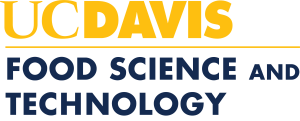COURSE GOALS: The goal of this course is to provide students a good understanding of modern day foods and their properties. Ancient and modern food folklore is examined using modern science, as related to health and well being. Exploration of foods and science related to food safety, organic food, herbalism, food preservation, and nutritional enhancement. The course is taught entirely from slides that are also posted on a Web page.
TEXT USED: "On Food and Cooking", Harold McGee.
ENTRY LEVEL AND POTENTIAL COURSE OVERLAP: This is an introductory General Education course for students requiring a course in Science and Engineering or Social Sciences. There are no prerequisites. There is some minor overlap in scope with FST 1. However, FST 1 focuses predominantly on the scientific principles underlying food science and technology. FST 10 emphasizes aspects of social sciences and their relationship to scientific principles. There may be a 3-5% overlap with NUT 10 on biochemistry of nutrients. NUT 10 concentrates on the metabolic processes in the body; whereas FST 10 is concerned with the nutritional composition of food. There is only a one-lecture overlap with SAS 90C.
COURSE FORMAT: This course will be taught as a lecture course with two 1-1/2-hours lectures per week. This three-unit course will be graded on several quizzes, two midterms and one final examination. Grading percentages are 25% for quizzes; 25% each for two midterms, and 25% for final examination.
TOPICAL OUTLINE:
-
"Health food movement;" Social and societal development of conventional, natural and organic foods
-
Hawthorne, placebo & nocebo effects; Social science perspective of what food represents
-
Sugars, natural & synthetic sweeteners
-
Food fiber; complex and plant carbohydrates
-
Animal & plant fats & oils; polyunsaturated and essential fatty acids
-
Animal & plant proteins; enzymes; essential & limiting amino acids
-
Food & culture; vegetarianism — vegan, lacto, ovo-lacto, fruitarian
-
Fruits, vegetables, herbs & spices; transgenic plants
-
Milk & dairy products; fresh & processed dairy foods
-
Cultured dairy foods, cheeses, yogurt; primary adult lactose intolerance
-
Naturally occurring toxicants and poisons in foods
-
Issues with food safety; food intoxications, infections & allergies
-
Nutrients in foods; vitamins & minerals; effects of cooking & processing
-
Beverages & stimulants; coffee, tea, chocolate; sensory evaluation
-
Wines, ales, beers and their use through history
-
Historical & current uses of medicinal plants
